Had India been different if Bose would have become the first prime minister of India instead of Pandit Jawaharlal Nehru?
Its Netaji Subhas Chandra Bose 125th birth anniversary tomorrow, i.e. January 23. You must have read many books and heard many stories about him. But in today's show, we are going to tell you something about Netaji that the historians and intellectuals of our country have always skipped in telling.
India got independence from the Britishers in the year 1947 and Bose mysteriously disappeared just two years before the independence. But imagine what would Indian politics have been like if that had not happened. And if Netaji Subhash Chandra Bose Azad would have been the first Prime Minister of India in place of Pandit Jawaharlal Nehru, how would our country be today. Today, in order to have a vision of this idea, we will turn the pages of history on which the dust has settled.
The story is of the year 1956 when India had completed nine years of independence. At that time, former British Prime Minister Lord Clement Atlee had come to Calcutta where he had met the then Governor of West Bengal, PB Chakraborty.
PB Chakraborty had then asked Atlee why the British agreed to leave India when the Quit India Movement started against the British in 1942 and ended without yielding any result in 1944. On this question, Atlee said that it was Subhas Chandra Bose and his independent Hind Fauz who forced the British to leave India.
Chakraborty asked another question - what was Mahatma Gandhi's role in India's independence. In response, Atlee said that Gandhi's contribution to India's independence was minimal. This anecdote suggests that Netaji's efforts in the Indian politics of the time were undermined and his importance was undermined which did not give him the recognition he deserved.
But if this had not happened, and Bose would not have mysteriously disappeared in 1945, 727 days before India's independence, India's politics would have been completely different. And it would not be wrong to say that Bose could have been the first Prime Minister of India.
Now, we will talk about when India was under British rule and the year was 1938.
At that time, Bose was unanimously elected as the President of Congress. Before him, Jawaharlal Nehru had also taken up this responsibility. There were many big leaders of Congress who were fighting for independence at that time and Congress was the face of the whole movement. These included Mahatma Gandhi, Subhas Chandra Bose, Dr Rajendra Prasad, Jawaharlal Nehru and Sardar Vallabhbhai Patel.
During his one-year tenure as Congress President, Bose built a tree of independent India which had five branches. The first was the nature of the organization, second was the idea of an aggressive movement, third was the struggle for independence, the fourth was the strategy against the British and the fifth was to gain independence by taking advantage of the second world war.
Bose's ideas were so powerful that his enemies began to arise in the Congress itself and you would be surprised to know that Mahatma Gandhi too distanced himself from his ideas and said that Netaji's views are not non-violent.
And the result of this is that in 1939 when Bose submitted his claim to become the President of the Congress again, Mahatma Gandhi and Jawaharlal Nehru formed such a coalition against him that slowly started to undermine the roots of Bose' importance.
Bose had then said that the election of Congress President should be contested by various candidates on various problems. But his view was rejected and on 24 January 1939, Dr Rajendra Prasad, Sardar Patel and JB Kripalani expressed their opinion against it and supported Mahatma Gandhi.
At that time, this alliance declared Pattabhi Sitaramayya as its candidate against Bose, but the important point here is that despite opposition from Mahatma Gandhi, Bose won the elections and Pattabhi Sitaramayya lost. And from here, politics started to undermine the importance of Subhas Chandra Bose in Congress, in which Bose stood alone on one side and Mahatma Gandhi and Jawaharlal Nehru on the other side.
Bose won the election by fighting the alliance, but the Congress leaders stopped supporting him. Due to which he also had to resign. Then, he formed a party called Forward Block, the purpose of which was to fight for the independence of the country, separately from the Congress.
Bose had once said that the Congress is a party of right-wing ideas that have compromised with the British for power and have also prepared a list of possible ministers. Bose believed that at that time, there were many big leaders in the national unit of Congress whose concerns were not with independence, but only for the greed of power.
Netaji Subhas Chandra Bose did not deviate from his goal of independence due to his courage, and vision. But there have been many times when the alliance between Mahatma Gandhi and Nehru did not give his views the respect he expected.
Bose believed that when the Second World War began in 1939, the British had begun to weaken their hold on India and he wanted to launch a big movement against the British at that time. But this idea by Bose was not supported by Mahatma Gandhi and Nehru and was rejected by them. But after 3 years, influenced by the very idea, this alliance started working on it. And Gandhiji also gave the slogan of 'Do or die'. This means that when Bose had suggested the same idea, Gandhi and Nehru did not listen to him but eventually had to adopt it later.
Bose said that it would be a wrong strategy to wait for the right time for freedom. But Gandhiji did not listen to him and said that for this, the organisation in the Congress has to be strengthened and people will have to be trained. Mahatma Gandhi also rejected Bose's idea, but in the year 1942, he agreed to it and then started the Quit India Movement. And most importantly, no credit was given to Bose for the idea.
In the year 1939, Bose wanted to start a big movement for India's independence, but then Gandhiji said that this would lead to riots in the country and this strategy could not be right. But when the Quit India Movement started against the British in the year 1942, then no riots broke out. This shows that what Gandhiji did in the year 1942, Bose had said it in the year 1939 only.
These examples prove that Bose was understanding the conditions of India better than Mahatma Gandhi and Nehru at that time and perhaps that was why a coalition emerged against him at that time.
Today we want to ask one more question. When Bose set up the Indian government in Singapore before independence on 21 October 1943, why was it rejected in India at that time? At that time, 11 countries gave their consent to Netaji's oath, among which Japan, Thailand, China, Burma, Italy, Germany and the Philippines were prominent.
On 30 December 1943, while waving the flag in Andaman and Nicobar, Bose said that from today, the islands are free from the British Raj. But these achievements of Bose were not considered as a matter of discussion in India. It is also an understandable thing that after these events, the people of the country had accepted Netaji as their Prime Minister. That is, you can say that he was the first 'Natural' Prime Minister of the country. But after his mysterious disappearance later, these achievements were disappeared from the history of the country. That is why we want this mistake to be undone today and for Bose to get the respect he deserves and for which he was entitled.
On 18 August 1945, it was claimed that Subhas Chandra Bose had fallen victim to a plane crash while leaving Taiwan. However, this claim has also been challenged many times and Bose's death remains a mystery even today. But before his death was claimed, there was a national wave in India in June 1945. At that time, cases were being filed against the Azad Hind Fauj in many parts of the country. But then a movement started against it, which was bigger than Quit India movement.
At that time, money was also sent by municipalities, diaspora Indians, gurudwara samitis, film stars from Bombay and Calcutta and many Tangwalas to help the Azad Hind Fauj. And the festival of Diwali was not celebrated at that time in many cities of United Punjab.
This is the reason that at that time, the British had accepted that there was hardly any other issue in which the people of India showed so much interest and it would not be wrong to say that it got so much sympathy.
This shows that before independence, Bose was more popular than Nehru among the people of India and Mahatma Gandhi knew this very well. And perhaps that's why when he mysteriously disappeared, an attempt to undermine his importance in Indian politics began.
If Netaji Subhas Chandra Bose Azad would have been the first Prime Minister of India in place of Pandit Jawaharlal Nehru, how would India have been today?
Firstly, the roots of the Nehru Gandhi family in Indian politics would have not been so strong. India's war with China would not have happened and there might not have been a border dispute with China either.
Had Bose been the first Prime Minister of India, there would have been no partition of the country. And Pakistan and Bangladesh would not have become separate nations, because Netaji believed in the formation of military power and he proved this by forming the Azad Hind Fauj. Netaji believed that India needed a strong leader who would explain the importance of strict discipline to the people of the country. That means if Bose were Prime Minister, our country would be more disciplined today.
There would be limited democracy in India. This means, the principle of 'Too Much Democracy' would not be strong and today's India would not be struggling with the problems caused by excessive democracy.
Bose was 10 years younger than Pandit Nehru. This means that independent India would have got a more youthful leadership, whose effect would also be seen in the policies of today's India.
Bose believed in women's empowerment and was also against the caste system. That is, Bose's ideas on these two big issues would have benefited India today if he had become the Prime Minister.
Today, Brazilian President Jair Bolsonaro thanked India in a tweet for sending the COVID-19 vaccines. In this tweet there is a picture of Lord Hanuman, who is seen flying from India towards Brazil with a vaccine and in it, he has written 'Thank you India'.
Right now, some people in our country are looking for the religion of vaccines. At such a time, this tweet from the President of Brazil sends a message to the world that no medicine has any religion. It has only one religion and that is to save people's lives.
This vaccine is 'sanjeevani booti' for the world. But if the picture of Hanuman ji had been put on the vaccine in India, then this 'Sanjeevani booti' would have become communal. Liberal gang and many intellectuals would have started a dispute over this vaccine. However, there is a country like Brazil which is thousands of kilometers away from India, which understands our feelings and he considers Hanuman ji as part of Indian tradition.
![submenu-img]() Bigg Boss OTT 3: Anil Kapoor confirmed as new host, says 'jhakaas nahi kuch khaas karte hai', leaves netizens divided
Bigg Boss OTT 3: Anil Kapoor confirmed as new host, says 'jhakaas nahi kuch khaas karte hai', leaves netizens divided![submenu-img]() Felony charges and political ambitions: Donald Trump at the legal and electoral crossroads
Felony charges and political ambitions: Donald Trump at the legal and electoral crossroads![submenu-img]() This actor left UPSC dreams for Bollywood, was launched by Amitabh, fought Shah Rukh, then disappeared for years, now...
This actor left UPSC dreams for Bollywood, was launched by Amitabh, fought Shah Rukh, then disappeared for years, now...![submenu-img]() Data-Driven Decision Making: Leveraging KPI Metrics for Strategic Insight
Data-Driven Decision Making: Leveraging KPI Metrics for Strategic Insight![submenu-img]() Exploring transformative potential of application modernisation for sustainable solutions in future
Exploring transformative potential of application modernisation for sustainable solutions in future![submenu-img]() Meet Indian genius who won National Spelling Bee contest in US at age 12, he is from…
Meet Indian genius who won National Spelling Bee contest in US at age 12, he is from…![submenu-img]() Meet man who became IIT Bombay professor at just 22, got sacked from IIT after some years because..
Meet man who became IIT Bombay professor at just 22, got sacked from IIT after some years because..![submenu-img]() Meet Indian genius, son of constable, worked with IIT, NASA, then went missing, was found after years in...
Meet Indian genius, son of constable, worked with IIT, NASA, then went missing, was found after years in...![submenu-img]() Meet IAS officer who was victim of domestic violence, mother of two, cracked UPSC exam in first attempt, she's posted in
Meet IAS officer who was victim of domestic violence, mother of two, cracked UPSC exam in first attempt, she's posted in![submenu-img]() RBSE Class 5th, 8th Result 2024 Date, Time: Rajasthan board to announce results today, get direct link here
RBSE Class 5th, 8th Result 2024 Date, Time: Rajasthan board to announce results today, get direct link here![submenu-img]() DNA Verified: Did Kangana Ranaut party with gangster Abu Salem? Actress reveals who's with her in viral photo
DNA Verified: Did Kangana Ranaut party with gangster Abu Salem? Actress reveals who's with her in viral photo![submenu-img]() DNA Verified: New Delhi Railway Station to be closed for 4 years? Know the truth here
DNA Verified: New Delhi Railway Station to be closed for 4 years? Know the truth here![submenu-img]() DNA Verified: Did RSS chief Mohan Bhagwat praise Congress during Lok Sabha Elections 2024? Know the truth here
DNA Verified: Did RSS chief Mohan Bhagwat praise Congress during Lok Sabha Elections 2024? Know the truth here![submenu-img]() DNA Verified: Is CAA an anti-Muslim law? Centre terms news report as 'misleading'
DNA Verified: Is CAA an anti-Muslim law? Centre terms news report as 'misleading'![submenu-img]() DNA Verified: Lok Sabha Elections 2024 to be held on April 19? Know truth behind viral message
DNA Verified: Lok Sabha Elections 2024 to be held on April 19? Know truth behind viral message![submenu-img]() Streaming This Week: Panchayat season 3, Swatantrya Veer Savarkar, Illegal season 3, latest OTT releases to binge-watch
Streaming This Week: Panchayat season 3, Swatantrya Veer Savarkar, Illegal season 3, latest OTT releases to binge-watch![submenu-img]() Avneet Kaur shines in navy blue gown with shimmery trail at Cannes 2024, fans say 'she is unstoppable now'
Avneet Kaur shines in navy blue gown with shimmery trail at Cannes 2024, fans say 'she is unstoppable now'![submenu-img]() Assamese actress Aimee Baruah wins hearts as she represents her culture in saree with 200-year-old motif at Cannes
Assamese actress Aimee Baruah wins hearts as she represents her culture in saree with 200-year-old motif at Cannes ![submenu-img]() Aditi Rao Hydari's monochrome gown at Cannes Film Festival divides social media: 'We love her but not the dress'
Aditi Rao Hydari's monochrome gown at Cannes Film Festival divides social media: 'We love her but not the dress'![submenu-img]() AI models play volley ball on beach in bikini
AI models play volley ball on beach in bikini![submenu-img]() DNA Explainer: Why was Iranian president Ebrahim Raisi, killed in helicopter crash, regarded as ‘Butcher of Tehran’?
DNA Explainer: Why was Iranian president Ebrahim Raisi, killed in helicopter crash, regarded as ‘Butcher of Tehran’?![submenu-img]() DNA Explainer: Why did deceased Iranian President Ebrahim Raisi wear black turban?
DNA Explainer: Why did deceased Iranian President Ebrahim Raisi wear black turban?![submenu-img]() Iran President Ebrahim Raisi's death: Will it impact gold, oil prices and stock markets?
Iran President Ebrahim Raisi's death: Will it impact gold, oil prices and stock markets?![submenu-img]() Haryana Political Crisis: Will 3 independent MLAs support withdrawal impact the present Nayab Saini led-BJP government?
Haryana Political Crisis: Will 3 independent MLAs support withdrawal impact the present Nayab Saini led-BJP government?![submenu-img]() DNA Explainer: Why Harvey Weinstein's rape conviction was overturned, will beleaguered Hollywood mogul get out of jail?
DNA Explainer: Why Harvey Weinstein's rape conviction was overturned, will beleaguered Hollywood mogul get out of jail?![submenu-img]() Bigg Boss OTT 3: Anil Kapoor confirmed as new host, says 'jhakaas nahi kuch khaas karte hai', leaves netizens divided
Bigg Boss OTT 3: Anil Kapoor confirmed as new host, says 'jhakaas nahi kuch khaas karte hai', leaves netizens divided![submenu-img]() This actor left UPSC dreams for Bollywood, was launched by Amitabh, fought Shah Rukh, then disappeared for years, now...
This actor left UPSC dreams for Bollywood, was launched by Amitabh, fought Shah Rukh, then disappeared for years, now...![submenu-img]() Bujii and Bhairava review: Prabhas' futuristic Baahubali-type Kalki 2898 prelude AD is fun, AI Keerthy steals the show
Bujii and Bhairava review: Prabhas' futuristic Baahubali-type Kalki 2898 prelude AD is fun, AI Keerthy steals the show![submenu-img]() This actress gave no hits in 9 years, no Bollywood releases in 5 years, charges Rs 40 crore per film, net worth is..
This actress gave no hits in 9 years, no Bollywood releases in 5 years, charges Rs 40 crore per film, net worth is..![submenu-img]() Mr & Mrs Mahi review: Janhvi, Rajkummar's earnest performances can't save film that doesn't really get cricket or women
Mr & Mrs Mahi review: Janhvi, Rajkummar's earnest performances can't save film that doesn't really get cricket or women![submenu-img]() Viral video: Little girl’s adorable dance to 'Ruki Sukhi Roti' will melt your heart, watch
Viral video: Little girl’s adorable dance to 'Ruki Sukhi Roti' will melt your heart, watch![submenu-img]() Groom jumps off stage for impromptu dance with friends, viral video leaves netizens in splits
Groom jumps off stage for impromptu dance with friends, viral video leaves netizens in splits![submenu-img]() Viral video: Chinese man stuns internet by balancing sewing machine on glass bottles, watch
Viral video: Chinese man stuns internet by balancing sewing machine on glass bottles, watch![submenu-img]() Watch: First video of Mukesh Ambani's son Anant Ambani-Radhika Merchant's 2nd pre-wedding bash goes viral
Watch: First video of Mukesh Ambani's son Anant Ambani-Radhika Merchant's 2nd pre-wedding bash goes viral![submenu-img]() Viral video: Outrage over woman's dance at Mumbai airport sparks calls for action, watch
Viral video: Outrage over woman's dance at Mumbai airport sparks calls for action, watch

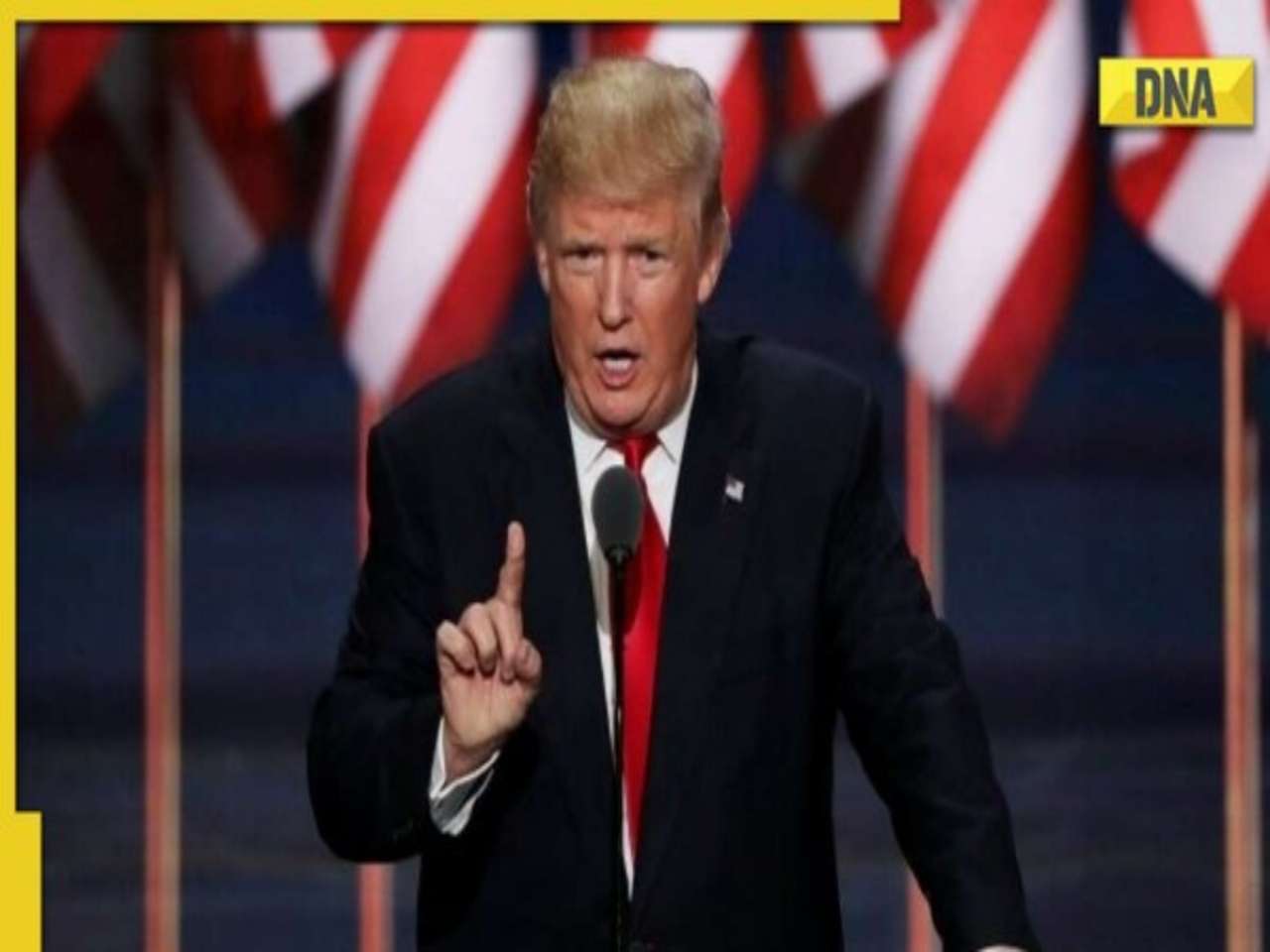

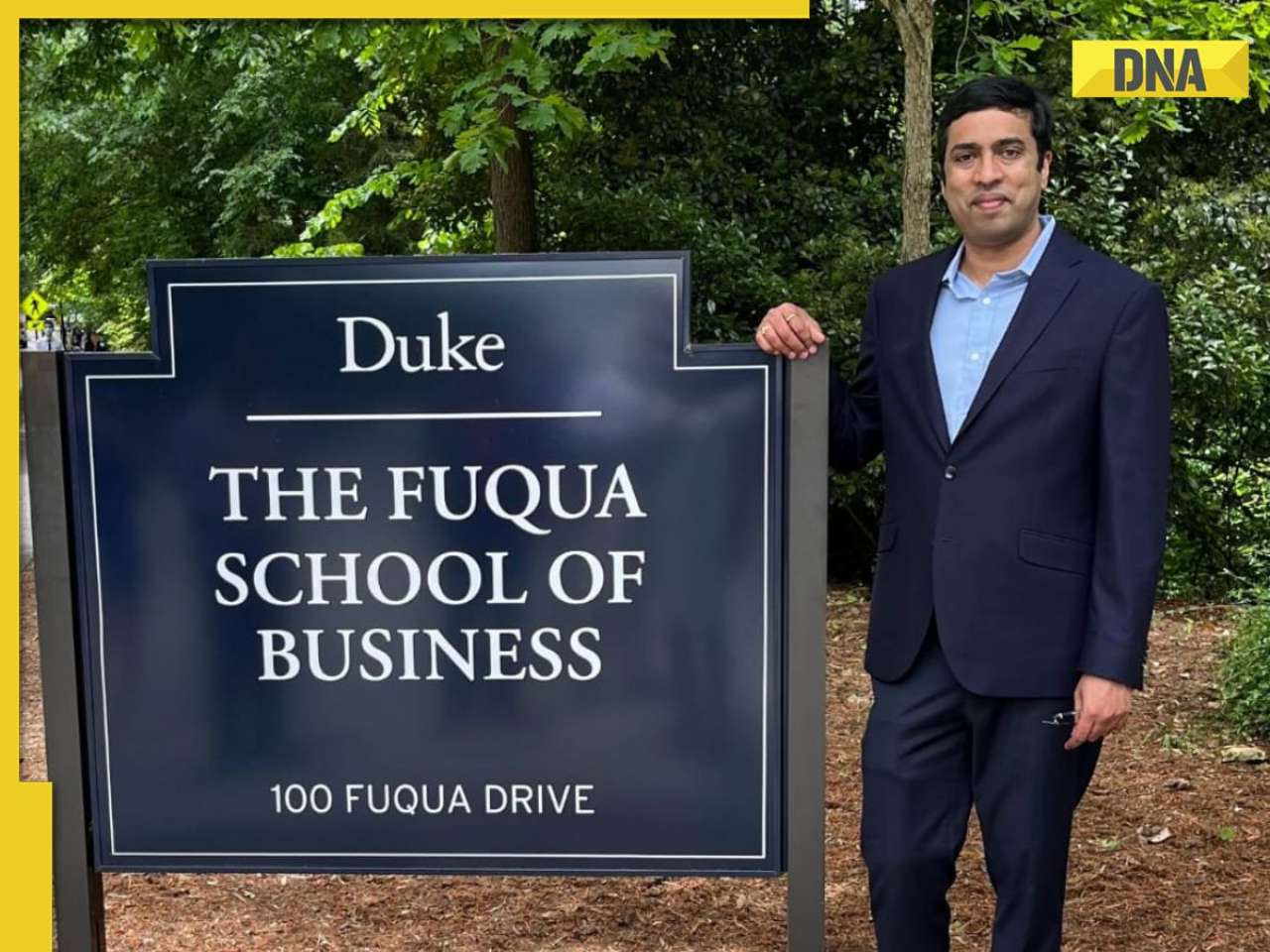






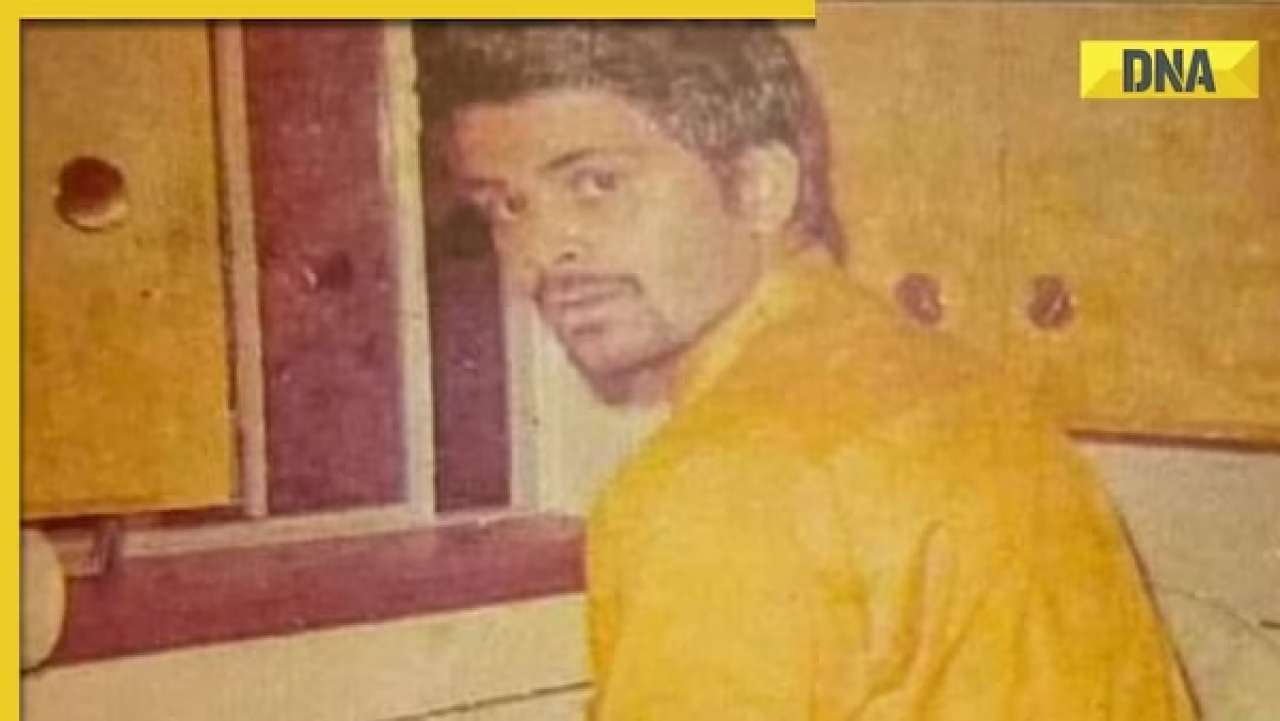

















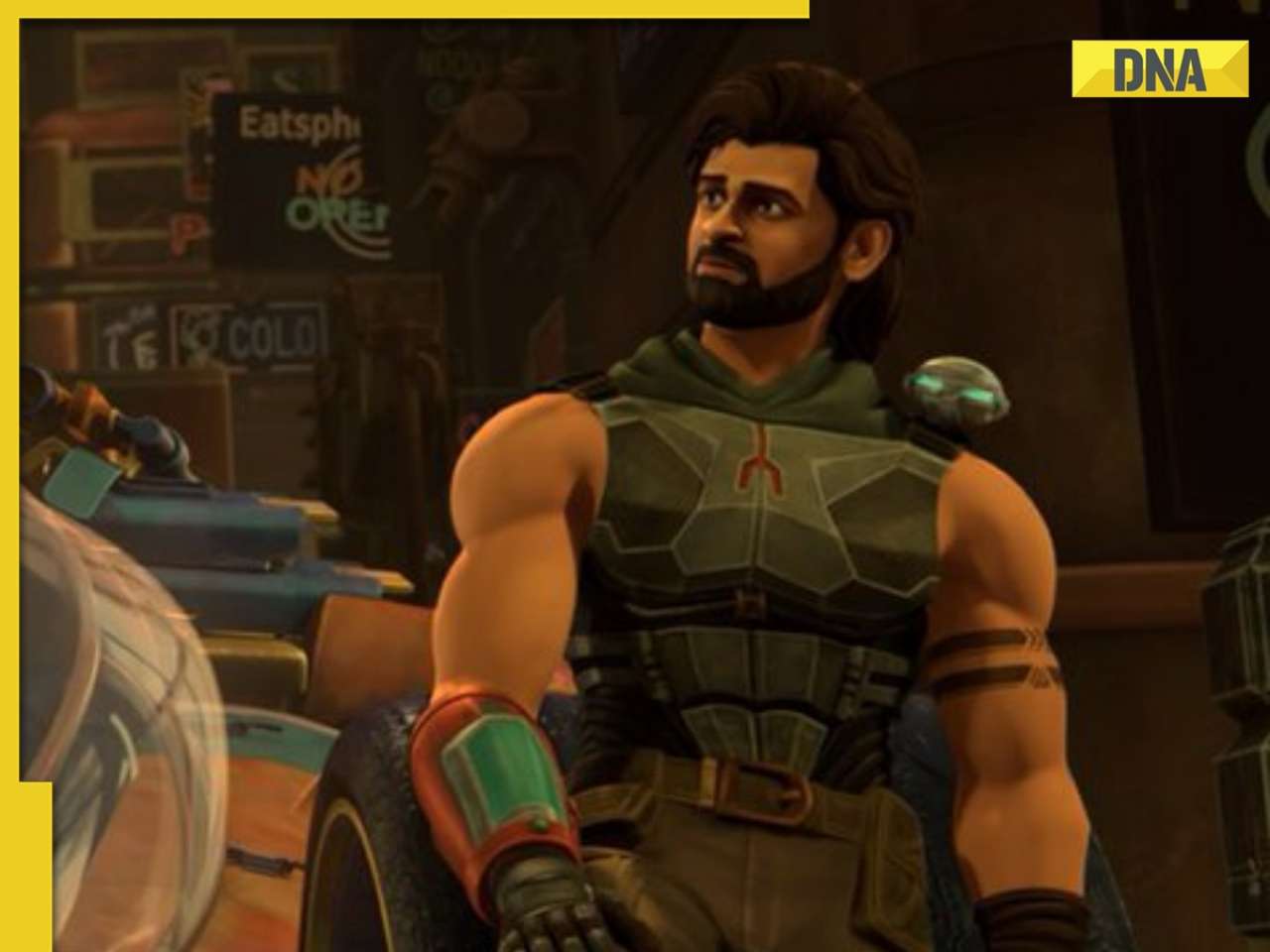

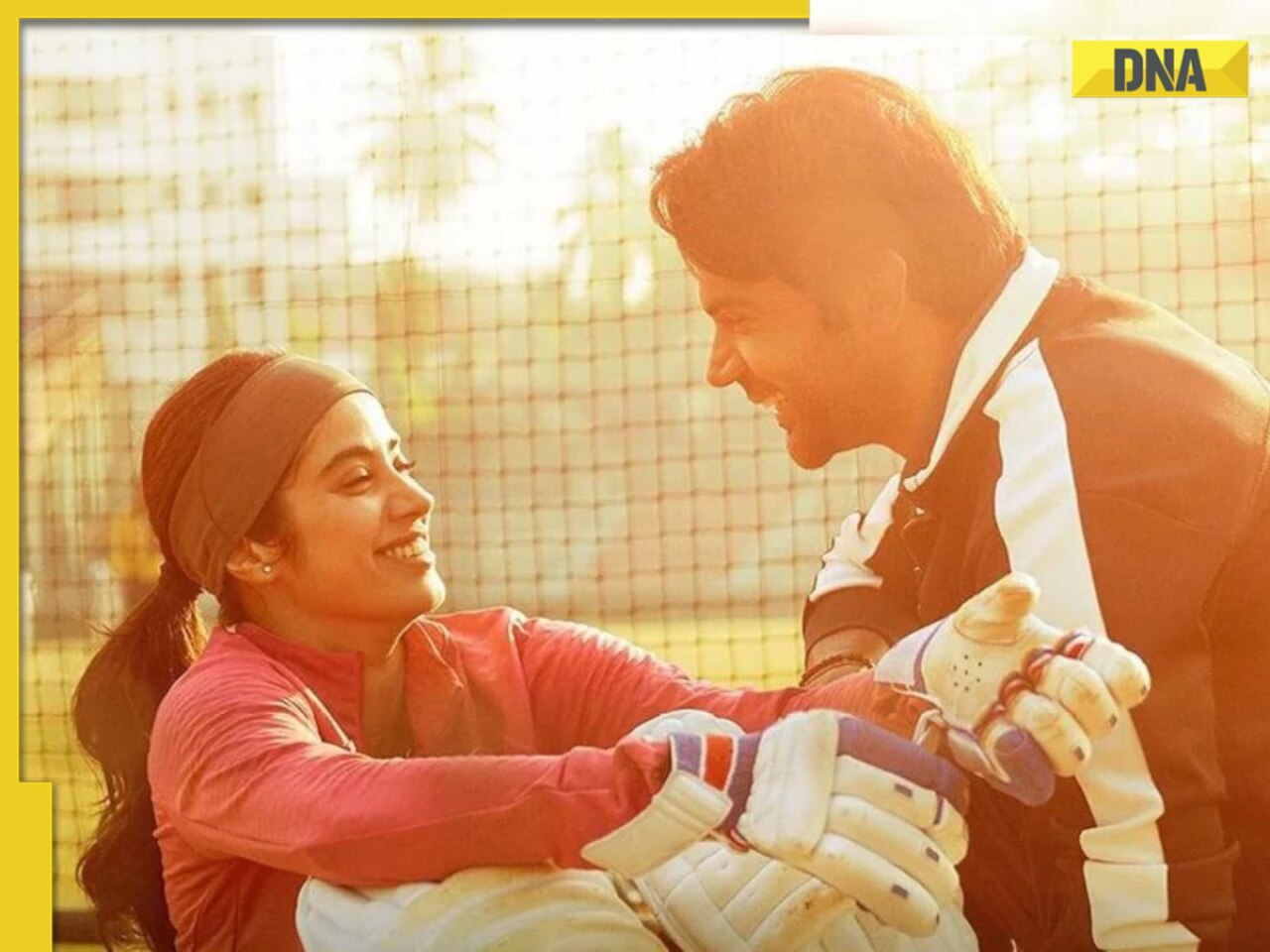






)



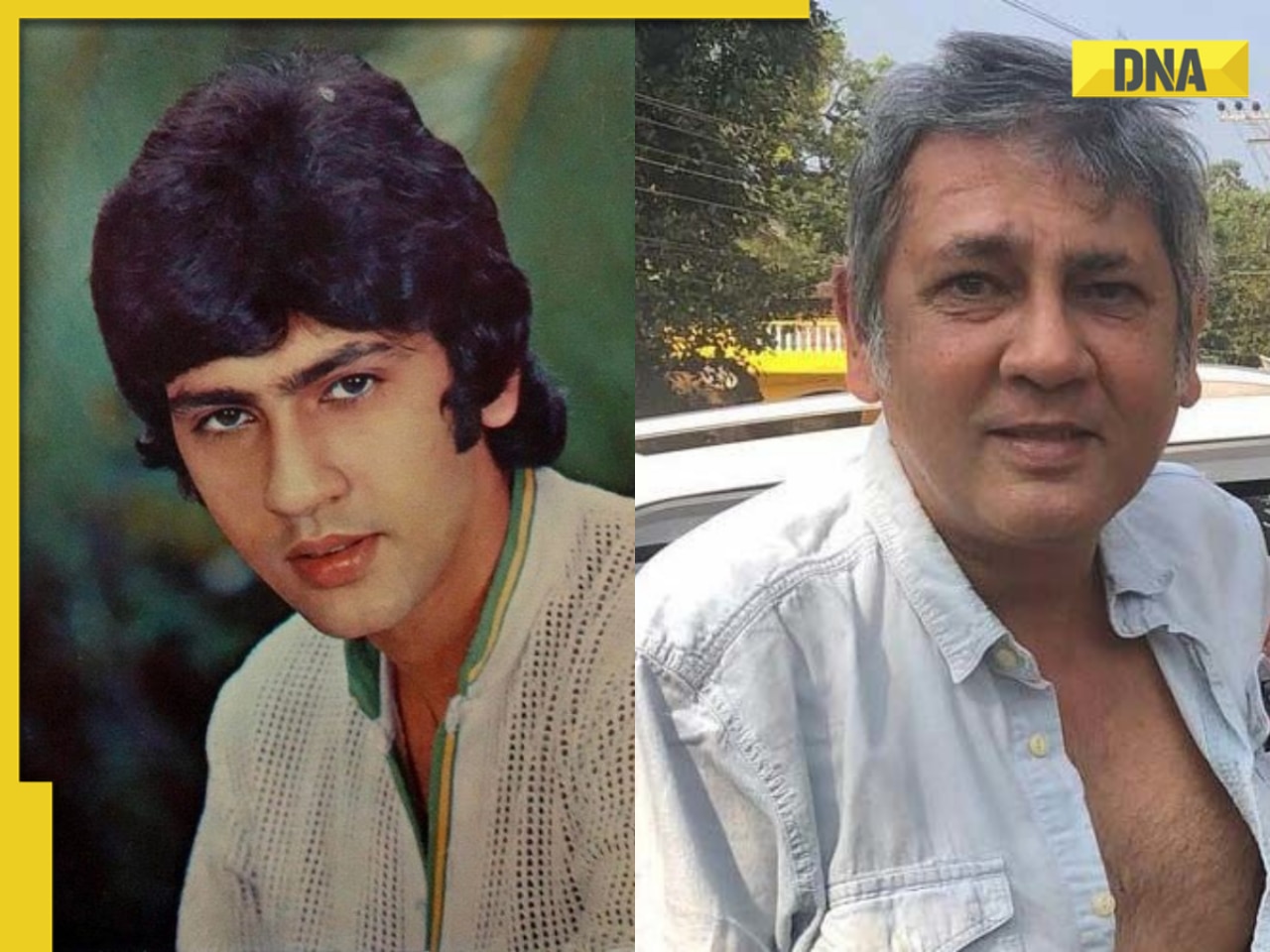

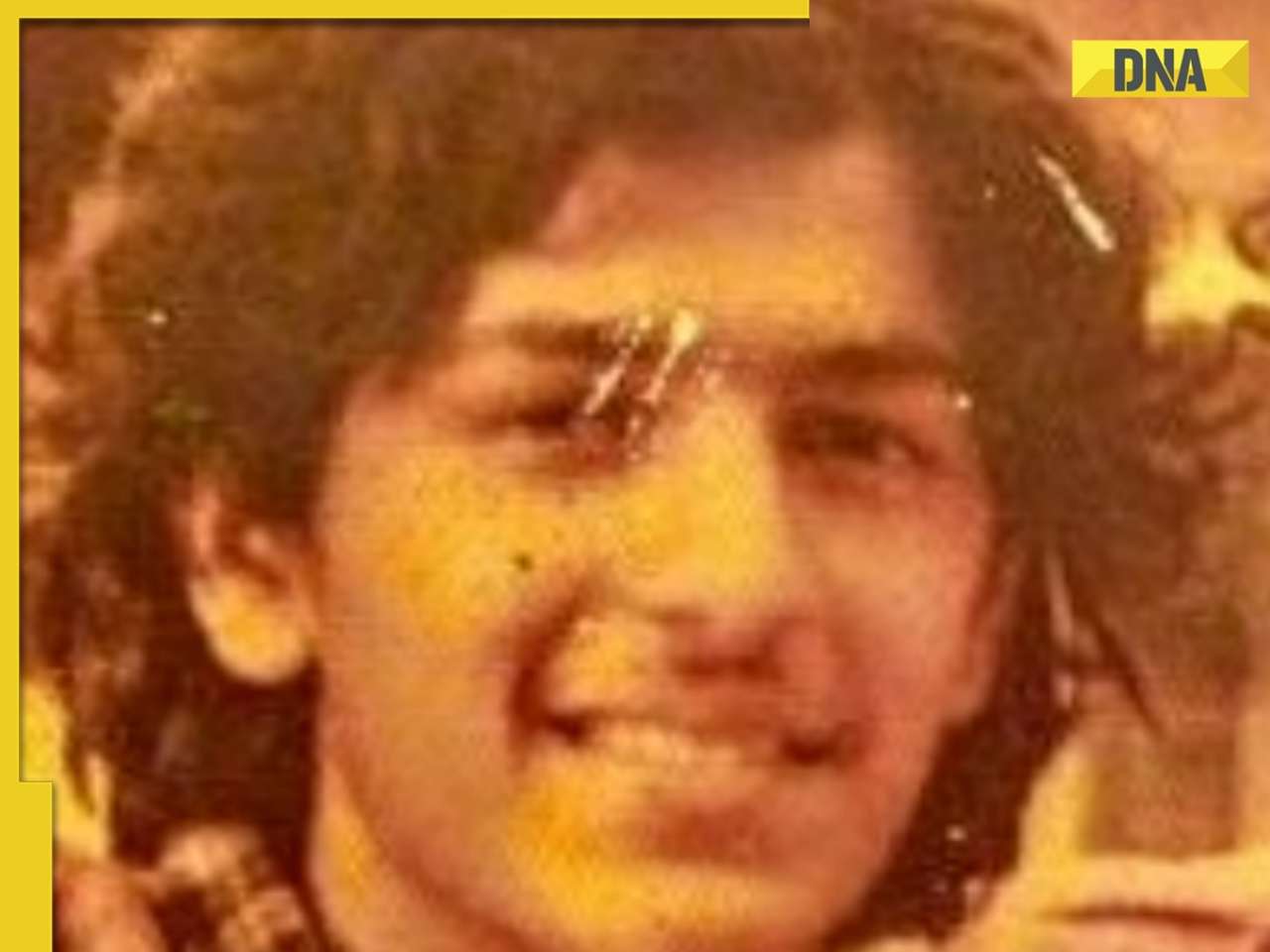
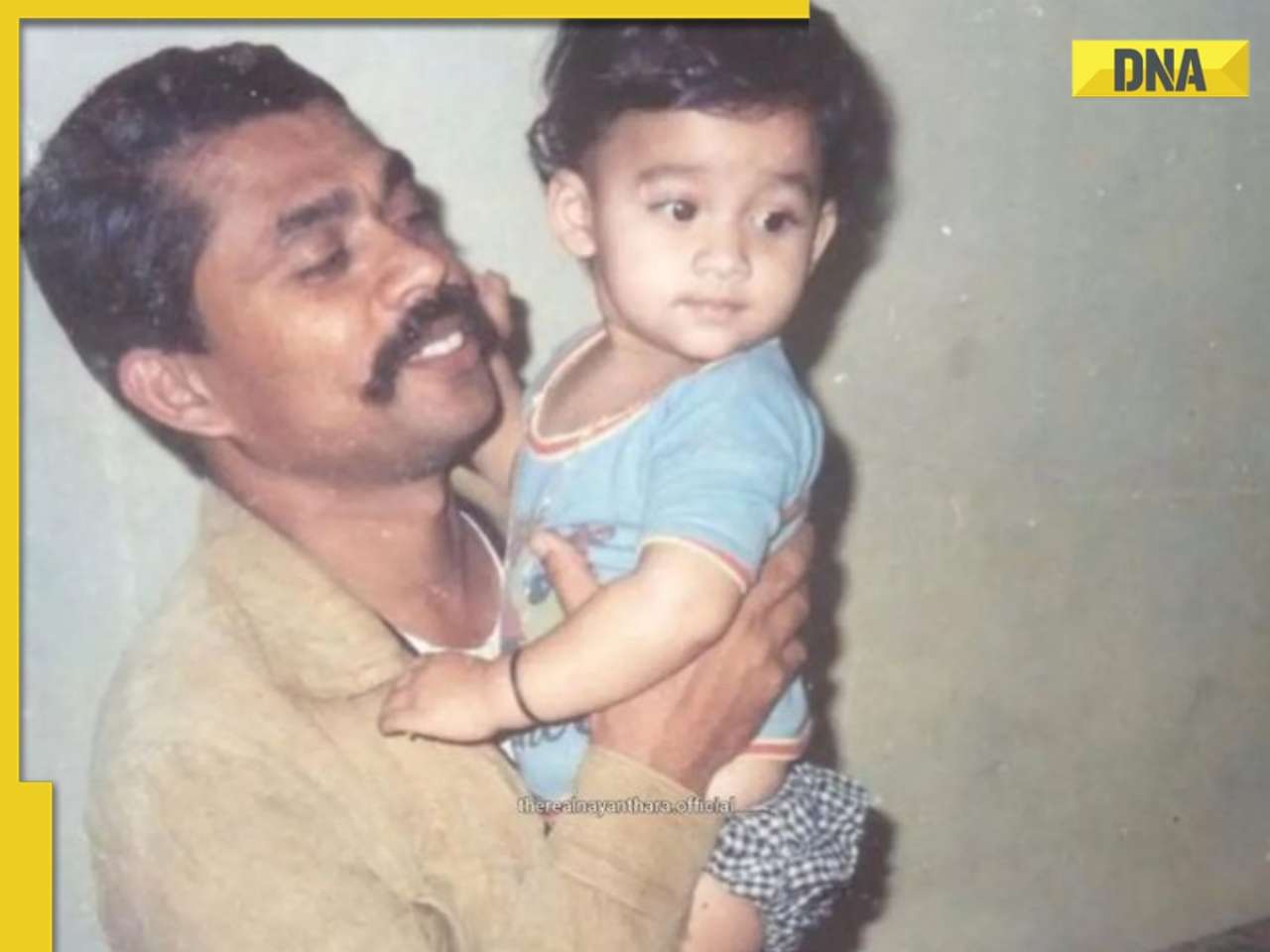


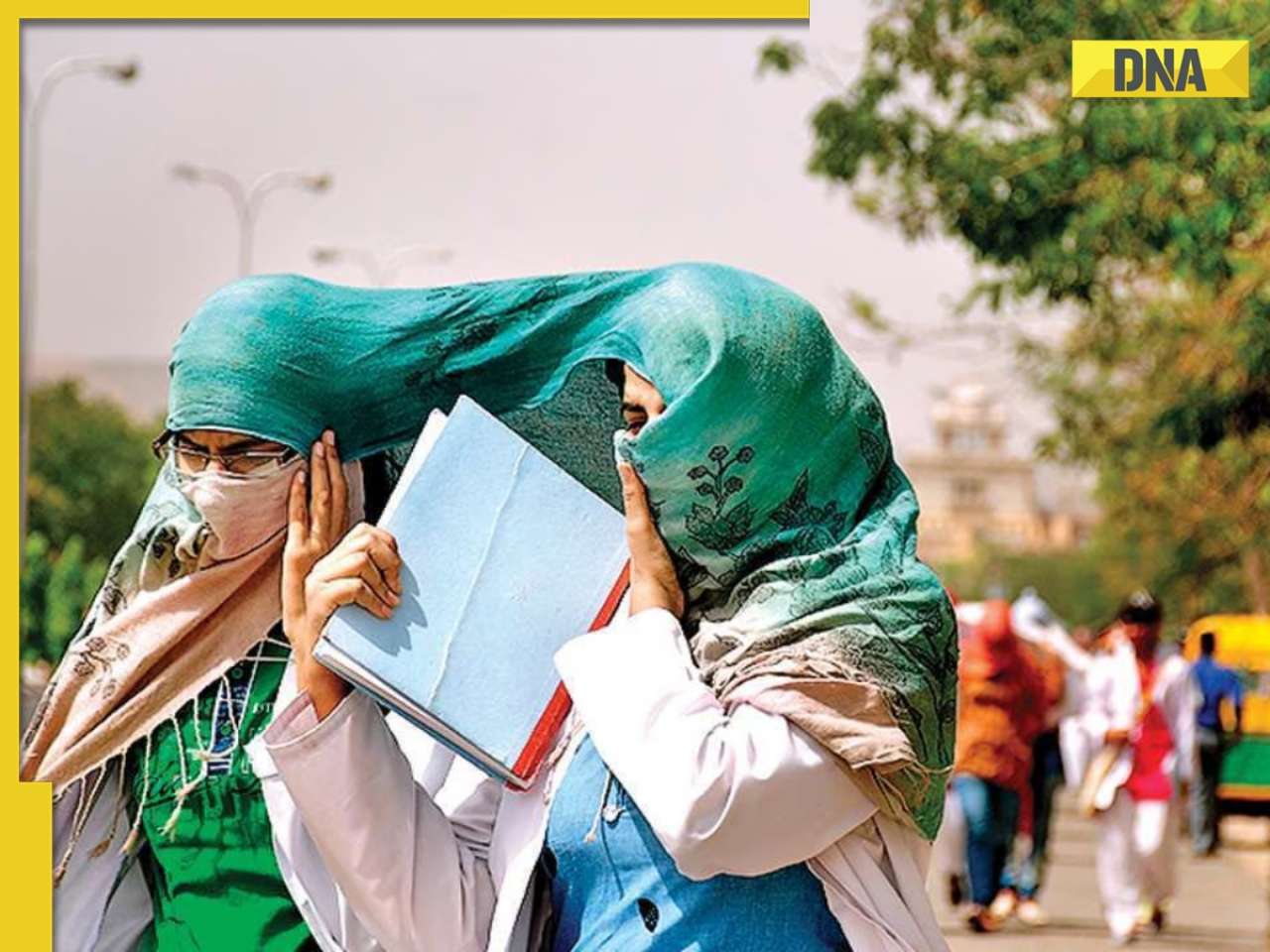

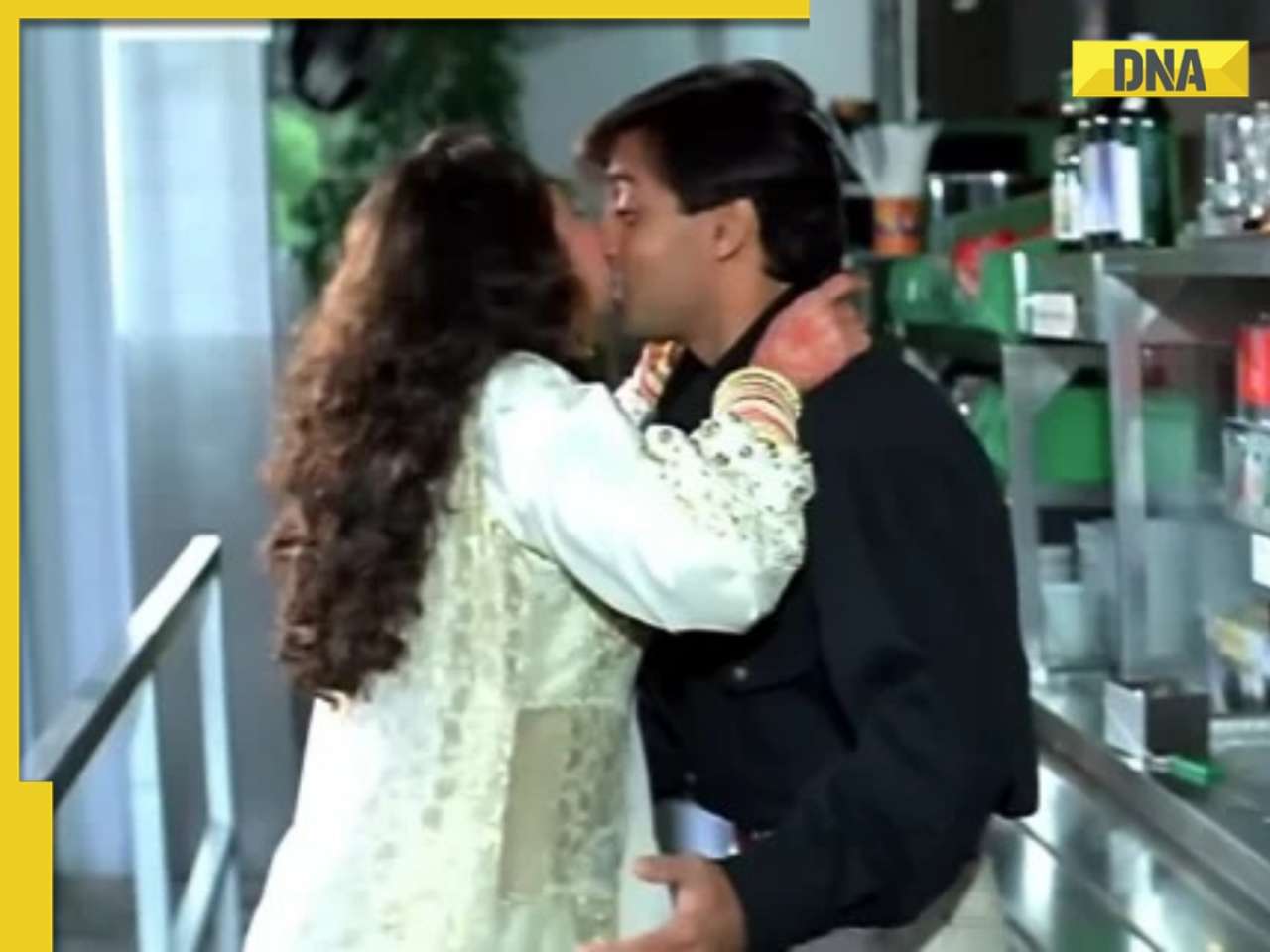

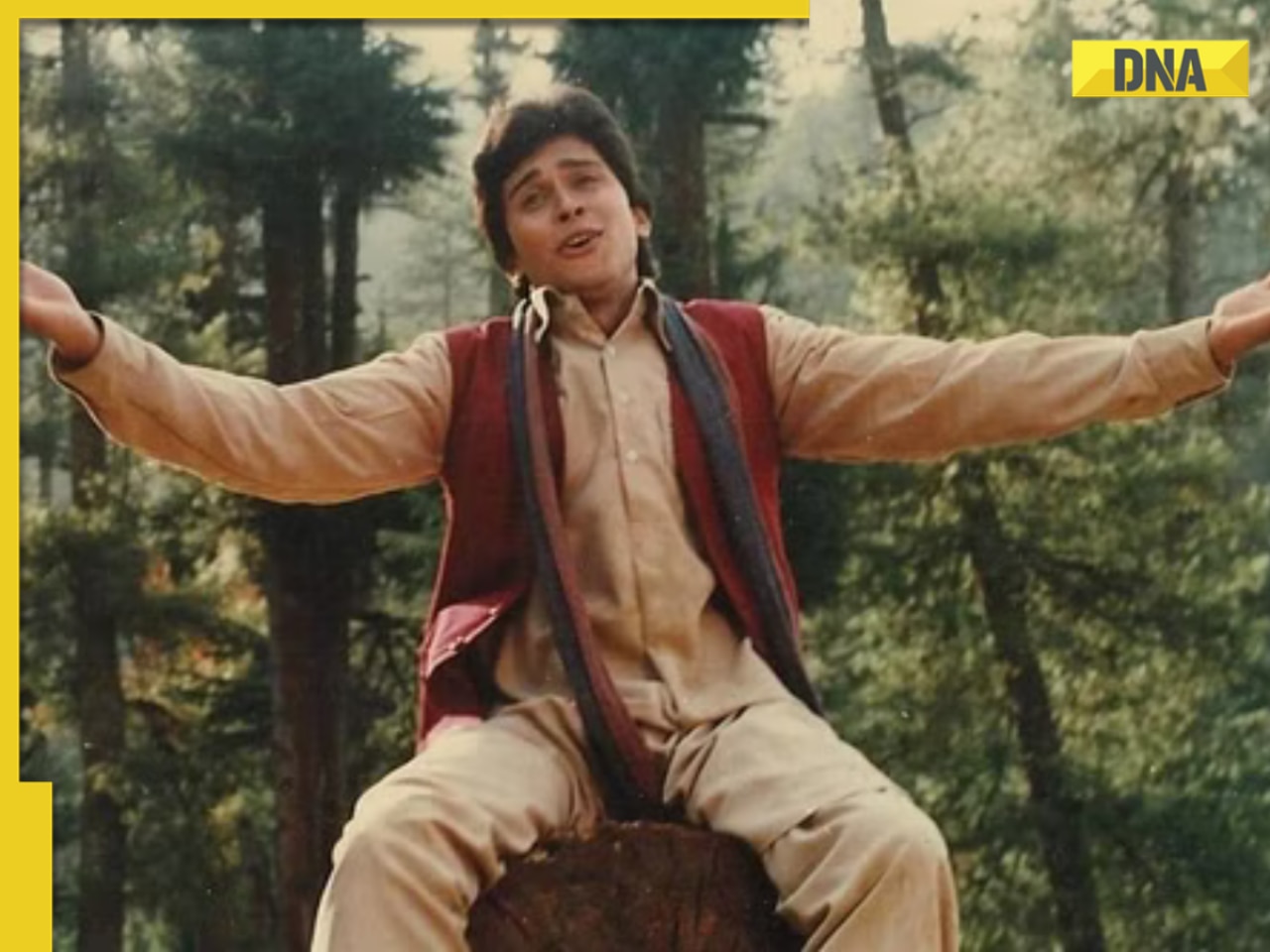




)
)
)
)
)
)